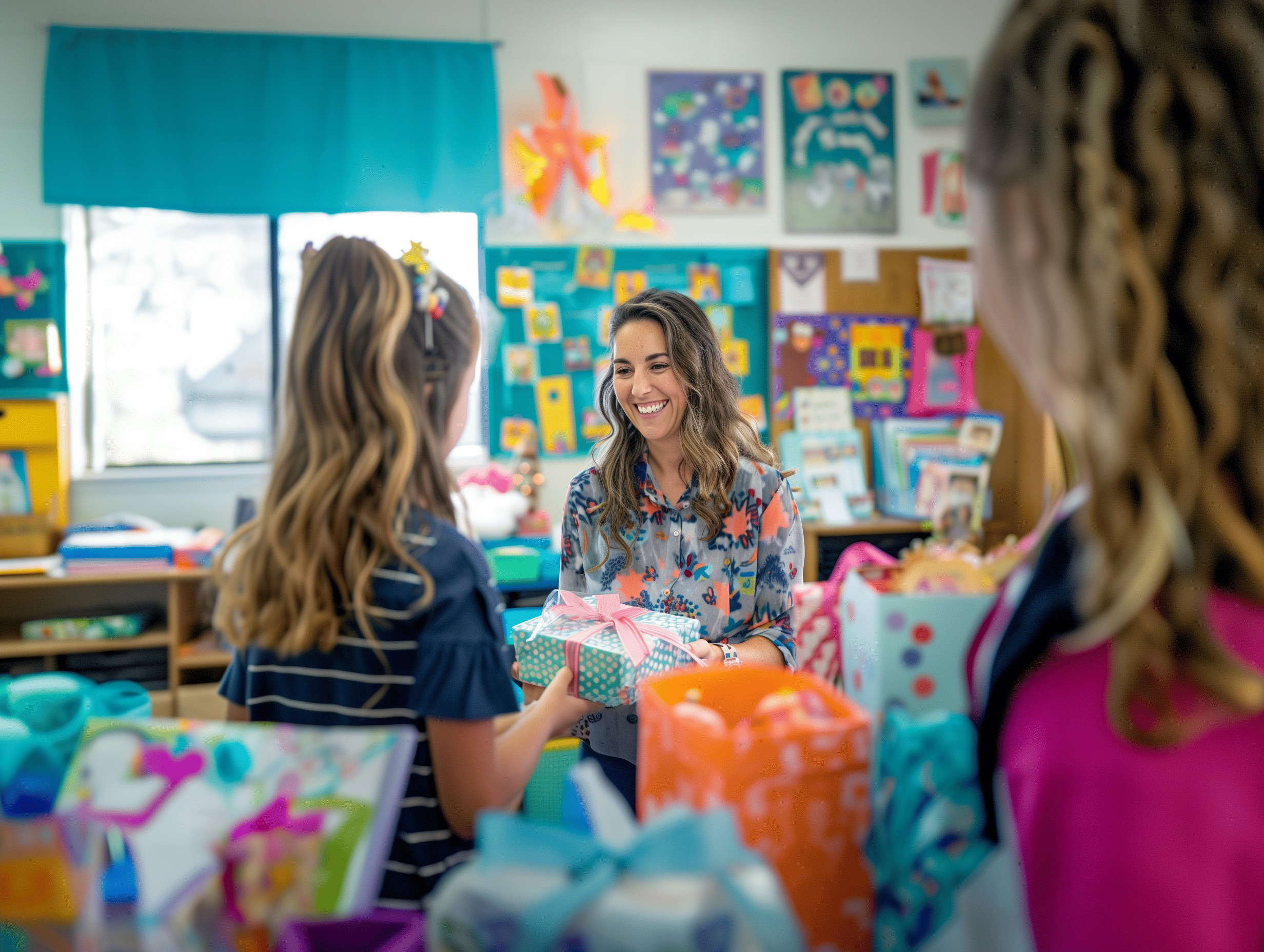| | | Differentiated Instruction and the Brain-Friendly Classroom, Portland Conference 2006 Don't miss this extraordinary opportunity to learn from experts and enjoy the waterfront! Marriott Portland Downtown Waterfront, Portland, Oregon July 23-26, 2006 / / | Carolyn Chapman Differentiating for the Stars: One Size Doesn't Fit All (keynote) With differentiation, teachers can lead students to take responsibility for their learning by being fully accountable, personally engaged, and actively immersed in experiences of their choosing. In its brain-friendly way, differentiated instruction creates designs for learning tasks and assessment tools that are interesting, relevant, meaningful, authentic, and powerful. Differentiated Assessment Strategies: One Tool Doesn't Fit All Participants will be actively engaged in a variety of useful informal and formal tools during this session. The toolbox of strategies is used to assess students before, during, and after learning. These easy to implement assessment strategies, tips, and tools enable educators to evaluate prior knowledge, to find entry points of learning and continue to let assessment drive curriculum throughout the learning process. Quality assessment data guides instruction in a differentiated classroom. Managing the Differentiated Classroom: Work Smarter, Not Harder Today's classroom requires educators to meet the diverse challenges of all students.To meet those challenges, educators are establishing brain compatible classrooms,and they are using differentiated instruction. Without differentiation, individualneeds and unique talents are often not tapped and a cap is put on potential.With differentiation, teachers can lead students to take responsibility for theirlearning by being fully accountable, personally engaged, and actively immersedin experiences of their choosing. In its brain-friendly way, differentiated instructioncreates designs for learning tasks and assessment tools that are interesting,relevant, meaningful, authentic, and powerful. As we know, one size doesn't fitall and one tool doesn't fit all. As educators, we are still facing great dilemmastoday: the conflict between teacher and student goals, between standardized testingand authentic assessment tools, and there is always more to learn than time tolearn. But we do know that a hands-on, stimulating, brain-friendly classroomenvironment can make content come alive with meaning and purpose. Differentiatedlearning can spark the students' desire to know more and help pave the pathwaysof their personal learning journeys. | | Carolyn Chapman | Dr. David Sousa
| David Sousa Helping Students Become Better Readers Through Brain Science Come to this interactive session and explore the fascinating discoveries that brain scientists are making about how the brain learns to read. Hot topics will include suggestions for deciding how to select a scientifically-based reading program (Is there such a thing?) for beginning readers as well as how to help older students improve their reading skills in content areas. Educators in both elementary and secondary schools will find practical applications of this exciting research that can help all students become more successful readers. | | Marcia Tate Worksheets Don't Grow Dendrites: 20 Instructional Strategies that Engage the Brain Have teachers ever complained that their students cannot understand or recall much of the content taught after a 24 hour period? It stands to reason that if students don’t learn the way we teach them, then we must teach them the way they learn! Experience 20 instructional strategies (based on brain research and learning style theory) that maximize memory and minimize forgetting. Increase learning for students when strategies like drawing, metaphor, music and storytelling are used to teach curriculum objectives and meet national standards. Explore research that shows why these strategies are preferable to others. Ensure that brains retain key concepts, not only for tests, but for life! This workshop has been called both professional and personally life-changing and lots of fun! | | Dr. Marcia Tate | Lynn Erickson
| Lynn Erickson Brain-based Teaching and Learning: Shaping the Conceptual Mind Educators concerned with meeting academic standards with instructional integrity value brain-based curriculum and instruction models. Learn how to create a synergy between the factual and conceptual levels of thinking to avoid the "inch deep-mile wide" curriculum and instruction syndrome. See why most traditional instructional activities fall short, and learn how to make slight adaptations to shape the deeper, conceptual mind. Are you concerned that students seem to forget too much of what they have been taught? Or that they don't really understand the important concepts behind the facts? This practical, interactive workshop for K-12 teachers and administrators provides concrete examples for different subject areas and levels. Learn how to take the high road with standards (and consequently raise scores) by shifting from coverage-based to brain-based teaching and learning. Integration of Thinking: The Key to Deep Understanding and Transfer of Knowledge! Let's explode the myths and examine the truths of integrated curriculum in K - 12! This session clarifies the meaning of integration and demonstrates that the real goal is the "integration of thinking" at a level where knowledge transfers and students see clear patterns and connections. Learn how to use a "conceptual lens" to focus and integrate thinking in units of study. See how to protect the integrity of units: and how to develop integrated thinking through "intra disciplinary" (within-discipline) units. Learn how to write powerful enduring understandings and guiding questions to differentiate for different ability levels. This session shows how to scaffold your own thinking to deeper levels so that you can effectively scaffold student thinking. See how to use essential questions of different types to path student thinking to deeper levels of understanding. | | Marilee Sprenger Differentiation: How the Brain Learns Best Brain-compatible classrooms and differentiation share a common philosophy: all children can learn. In this session these common philosophies along with practical strategies will be emphasized. Learning profiles and memory pathways provide an interesting approach to differentiating content, process, and product. Join this session and learn some simple components of productive learning environments.Memory 101: You Can Always Remember if you N.E.V.E.R. F.O.R.G.E.T. If your students have ever forgotten their homework, to bring supplies to class, or to get papers signed, this session is for you! If you've ever forgotten a name, an appointment, or what someone just told you, this session is for you! If you have ever been concerned about raising student achievement and its relationship to memory, this session is for you! Memory is mysterious. Learn about the latest brain and memory research and how to improve and maintain memories. A simple mnemonic, N.e.v.e.r. F.o.r.g.e.t. may be the answer to many of your memory questions. You can learn how to create more powerful memories as well as improve attitudes and abilities. Attend Memory 101 and learn to never forget! | | Marilee Sprenger | Rita King
| Rita King Differentiated Instruction in Reading and Writing: Strategies in Motion Many students in middle and high schools do not comprehend what they read. Therefore, the first part of this session will cover reading skills and strategies to teach: phonics, word attack skills, vocabulary development, and comprehension, using content materials. These skills can give students the tools they need to interpret, retain, recall, and apply information in all subject areas, including writing. The innate need for the written word, as a means of communication, bridges a way to communicate with prior knowledge as a necessity in order for the mind to understand. Therefore, writing strategies will be the focus of to the second half of the session. In this part of the session, participants will learn ways to create a classroom climate conducive to good writing; ways to assess, diagnose and prescribe solutions to barriers to writing; and ways to implement both formal and informal writing processes across genres and content areas. | | All featured sessions are presented in an interactive, 3 hour workshop format! Registration is $449 per person President's Reception plus Coffee & Danish Breakfasts Included (For room reservations please call the Mariott Portland Downtown Waterfront Hotel at 503-226-7600) |



